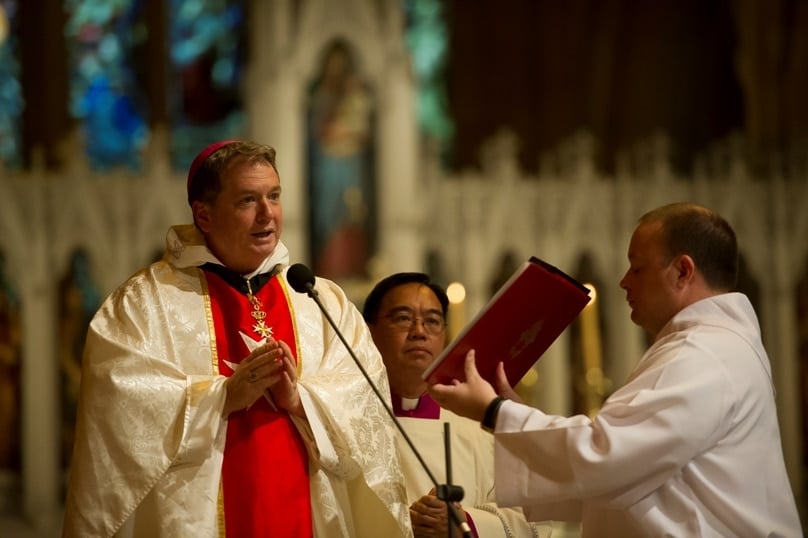
Real world experience confirms that there is nothing empowering about assisted dying, especially for those who lack the money, fame and articulateness of euthanasia campaigners, Archbishop Anthony Fisher OP said at St Mary’s Cathedral last Saturday.
Preaching at the Order of Malta’s annual Lourdes Day Mass, Archbishop Fisher spoke movingly about Brittany Maynard, the “beautiful and articulate” 29-year-old US woman with brain cancer who campaigned for euthanasia in the world’s media.
She died by euthanasia on 1 November under the state of Oregon’s assisted dying provisions.
“She became a euthanasia crusader in the months that followed [her diagnosis], arguing that this would empower dying people,” Archbishop Fisher said.
“But reason and experience suggest the opposite is the case, especially for those without the money, fame and articulateness of Brittany.
“Once euthanasia is accepted, even as a last resort, those who are suffering tend to suffer more and those who are vulnerable face new threats to their dignity and very life.”
Stories had emerged from the Netherlands and Belgium, both of which legalised euthanasia in 2002, of people being euthanised without their families’ knowledge or while they were too young, disabled, unconscious or depressed to understand and freely consent, the archbishop said.
In February, Belgium prompted alarm, including in media generally favourable to assisted dying, by being the first country to legalise euthanasia for terminally ill children with no age limit (the minimum age someone can be euthanised in the Netherlands is 12, with parental consent).
In July, a Dutch ethicist and former supporter of the Dutch legislation, Theo Boer, urged British MPs to reject proposed euthanasia legislation then before their parliament.
“Whereas in the first years after 2002 hardly any patients with psychiatric illnesses or dementia appear in reports, these numbers are now sharply on the rise,” Boer told Murdoch-owned papers at the time.
“Cases have been reported in which a large part of the suffering of those given euthanasia or assisted suicide consisted in being aged, lonely or bereaved.
“Some of these patients could have lived for years or decades. Pressure on doctors to conform to patients’ – or, in some cases, relatives’ – wishes can be intense. Pressure from relatives, in combination with a patient’s concern for their well-being, is in some cases an important factor behind a euthanasia request. Not even the review committees, despite hard and conscientious work, have been able to halt these developments.”
